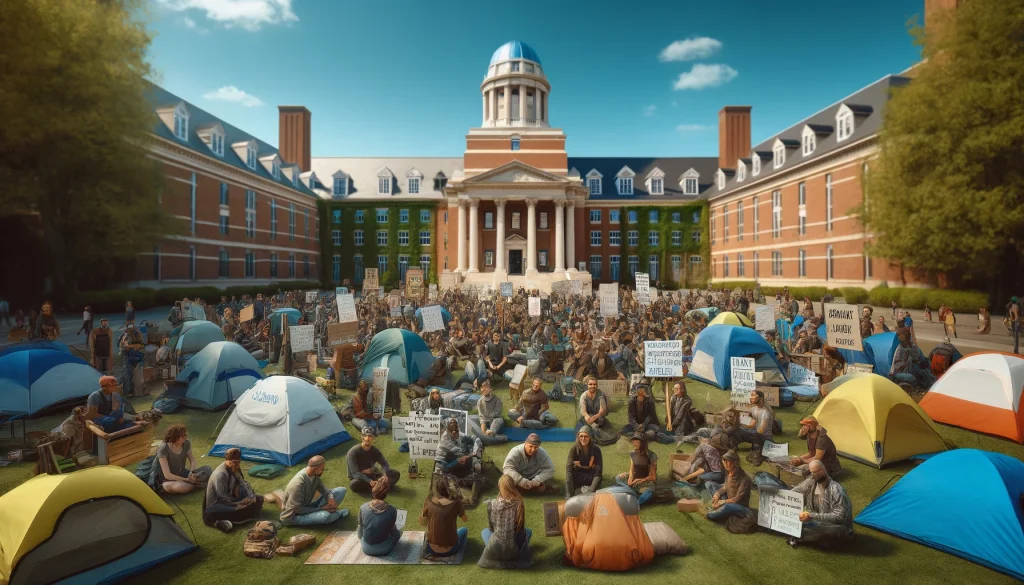Students at universities across the United States, from Massachusetts to California, have escalated their anti-Israel protests, forming encampments and demanding their institutions sever all business relations with Israel. Inspired by similar actions at Columbia University, where over 100 students were arrested last week, these protests have spread to prestigious campuses including Yale, MIT, UC Berkeley, and many others.
The protesters have unified around a central demand for their universities to end any financial or business dealings that support Israel, particularly in response to the recent Israel-Hamas conflict, which has now passed its six-month duration. The conflict has drawn widespread criticism due to the heavy civilian casualties in Gaza, sparking global calls for a ceasefire and stronger protests across various platforms, including academic institutions.
The student demonstrators are specifically calling for their universities to:
-Cease business with military weapons manufacturers supplying arms to Israel.
-Reject research funding from Israeli sources that support military efforts.
-Divest from monetary funds or endowments linked to Israeli companies or military contractors.
-Increase transparency regarding financial transactions and relationships with Israeli entities.
At Columbia University, where these protests seem to have gained significant momentum, university president Dr. Nemat “Minouche” Shafik expressed deep concern over the disruption and the rising tensions on campus. She noted that the divisive atmosphere had been exacerbated by outsiders with agendas not aligned with the university’s values, pushing the community to its breaking point.
The situation at Columbia has led to the implementation of hybrid learning to help calm the situation and provide safety for all students and staff. Dr. Shafik stressed the need for a “reset” to lower the tensions and allow the university community to reflect and decide on the next steps peacefully.
The scope and intensity of these demonstrations highlight a significant moment of activism on U.S. college campuses, reflecting broader geopolitical conflicts and raising questions about the role of academic institutions in political and ethical debates on an international scale.


